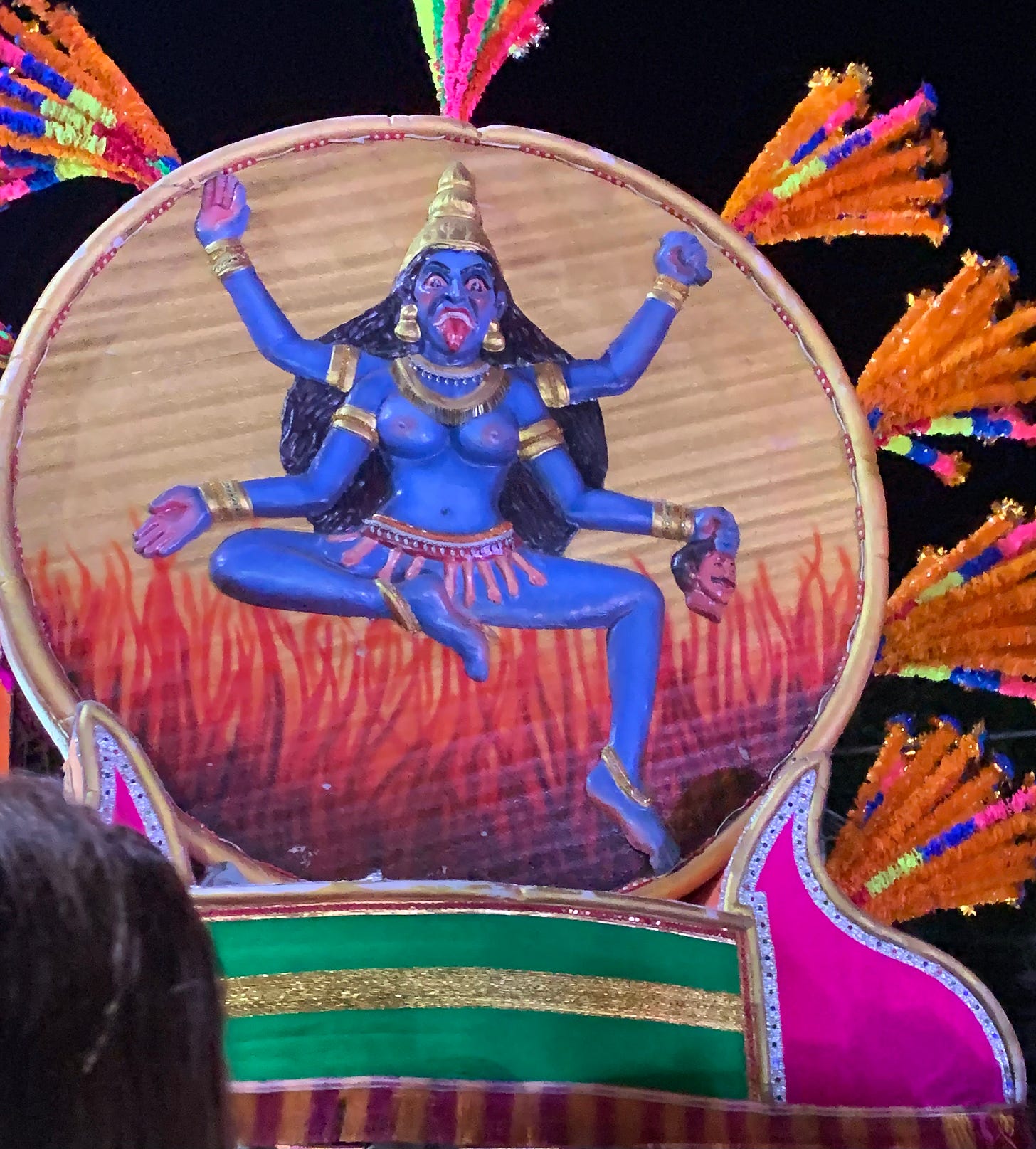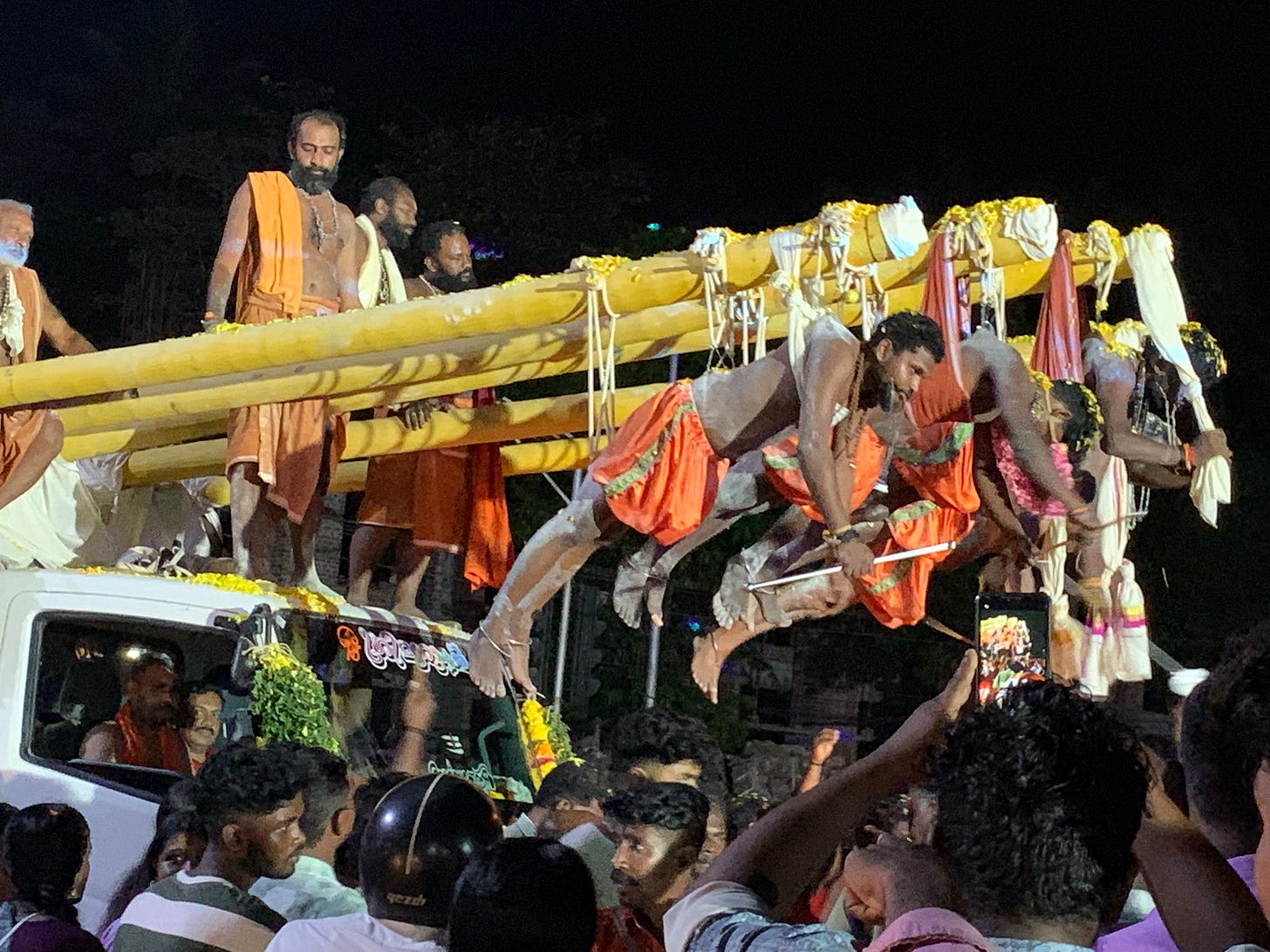Revealed - The Real Meaning of "Repent"
Blindly following the assumed definition of this word has caused unnecessary suffering for millennia
The Arattu Festival is a 10-day Hindu celebration held every spring near the Perunthanni Nampachapilla Sree Durga Devi Temple in Thiruvananthapuram, the capital of the Indian State of Kerala.
(What a mouthful, huh?)
I attended this event for a few hours the other night, along with two Italians.
We were dumfounded at all the visual stimuli there.
There were brilliant illuminations of Hindu deities, fireworks, and a rave-like dance-a-thon where men were gyrating wildly to ear-splitting Indian music, the beat to which was matched by a blinding light show.
(Oddly, no women were dancing… a cultural thing, I suppose.)
There were also hundreds of people on the sidelines, obviously waiting for something bigger to happen.
That “something” turned out to be a lengthy procession, which happened a couple of hours after we arrived.
It featured uniformed drummers, brightly costumed dancers (some like peacocks, others like Hindu gods and goddesses), and dazzling Hindu-themed “floats.”
The first “float” featured several men suspended horizontally, face down, from the top of it.
Above them were bearded sadhus (holy men) who seemed to be lording over them.
At first glance, it appeared these suspended men were secured in place by some sort of support system.
That wasn’t the case.
No, they were hung in place through metal hooks that pierced their thighs and backs.
It was an other-worldly (and disturbing) sight I’ll never forget.
I learned later that these men were putting themselves through this painful ordeal to atone for their sins.
In other words, they were practicing an extreme form of penance.
They weren’t the only people in the procession to do so, as there were other men in the procession who had metal, arrow-like rods piercing their cheeks (in one side and out the other).
After returning from this festival, I recalled something I had read some time ago about how the word “repent” originally meant something far different than what’s commonly accepted today.
Most people think that word means feeling or expressing regret or remorse about one’s wrongdoing or sin.
To atone, some people perform good deeds.
Others – like the suspended Hindus in the procession I attended – endure self-inflicted punishment as an outward expression of their repentance.
But if what I read about how the word “repent” is misunderstood, then people have been putting themselves through a lot of unnecessary suffering – both mental and physical – through that misunderstanding.
According to the book The New Man by Maurice Nicholl, the word “repent” is derived from the Greek word metanoia.
Nicholl says meta originally meant transference or transformation, while noia is the Greek word for mind.
Therefore, he said the word “repent” has to do with the transformation of the mind, not showing sorrow for your sins and vowing to never sin again.
In other words, repent was originally meant to think in a new way in order to realize one’s true nature.
But when it comes to religious dogma, thinking in a new way is typically discouraged.
Makes you wonder how many other religious “truths” are based on linguistic misunderstandings, right?
Anyway, that’s it for today,
Taking nothing at face value,
Doug Fogel, Publisher, Natural Wealth, Natural Health





